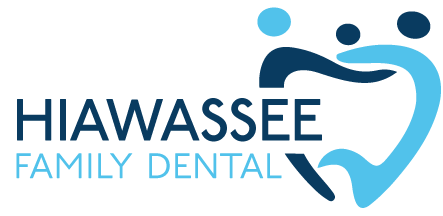
22 Feb Genetics and Dental Health: A Brief Survey
Can my genes predispose me to gum disease? What about cavities? If my parents have healthy teeth, does that mean I can count on having healthy teeth, too? The connection between your genetics and your oral health is complex and worth exploring. In this post, we will do just that: we will examine if and how your biology and your oral health are linked, so that you are better equipped to understand the full picture of your own health.
An Overview of the Connection
We can easily understand that the size of our mouth and the shape of our jaw are determined by the genes our parents pass on to us. Without shared genes, we wouldn’t have things like family resemblance at all. However, genetics control more than just your bone structure. The genes you were born with have the power to benefit or harm your oral health in multiple ways.
For instance, if your teeth are improperly aligned (a condition called a malocclusion), you may have inherited this from one of your parents. Having a malocclusion can amplify other issues, such as tooth decay or jaw pain. Similarly, if your parents’ teeth have soft enamel, yours are more likely to have weak enamel, too. This, in turn, produces a more optimal condition for cavities to flourish. Below, we’ll dive deeper into two specific connections: tooth decay and gum disease.
Genetics and Tooth Decay
The National Institute of Dental and Craniofacial Research—NIH for short—cites tooth decay and gum disease together as the leading causes of diseases worldwide, costing upwards of $540 billion in 2015. At first, this claim might surprise you. Is tooth decay really one of the most prevalent diseases worldwide? When we dig deeper, we find that the number of those affected by tooth decay is indeed staggering. The NIH reports that 90% of those ages 20-64 have had decay, with at least 1 in 4 currently having decay.
This shocking number, it turns out, is indeed influenced by genetics. The NIH reports that, “In the largest study of its kind, an international group of researchers analyzed oral health and genetic data collected from over 500,000 participants and identified 47 areas of the genome linked to dental caries (tooth decay).” While not all conclusions are concrete, research points to the fact that if your parents are prone to tooth decay, your likelihood for tooth decay goes up as well.
One illustration of how this might occur is through your enamel. Strong enamel can more easily resist cavities; acid and bacteria more easily eat away at weak enamel. If your parents have weak enamel, they can pass on this weakness to you. That condition is officially known as enamel hypoplasia. It can cause white spots, deep grooves, and even fissures on your teeth. Those who inherit enamel hypoplasia from their parents will be more likely to experience tooth decay due to their weakened enamel and increased vulnerability to acid and bacteria.
Genetics and Gum Disease
Your family background and your risk for gum disease are connected on multiple levels. First of all, researchers have indeed identified multiple genes that are believed to play a role in the development of gum disease. The ADA confirms this, labeling genetics as a risk factor in developing gum disease. (Colgate)
Even more than that, your family culture can also affect your likelihood of developing the disease. Certain lifestyle choices such as smoking or poor oral health will increase your risk of gum disease. These habits often run in families. If your family has a history of gum disease, or even a history of factors that would increase risk for gum disease, such as smoking, then you will need to be diligent in ensuring that you maintain proper oral health and monitor for any signs of trouble.
What Genetics Don’t Control
We’ve already established: genetics are powerful. From family resemblances to weak teeth, they hold great influence over what happens to you and your body. But it’s important to remember that genetics don’t control everything about your oral health.
Say, for instance, one of your parents had weak enamel, and they passed that on to you. That doesn’t mean that you are destined for a life of cavities and might as well let your teeth start decaying now. Genetics do not control the actions you take to protect your own oral health! You should always maintain proper oral hygiene, but if you know that you have a genetic predisposition towards a certain dental problem, you should be that much more steadfast in maintaining that routine and being on the lookout for problems. You don’t need to sit around and wait for your inherited dental problems to overtake you. Fight back!
Your best strategies to do this are:
Brushing twice a day.
Brush for two minutes each time, and make sure not to miss those hard-to-reach places. Debris and plaque can easily hide out in the crevices and deep recesses of our mouths. If you’ve inherited weak teeth, you will need to be even more diligent about brushing to ensure no acids or bacteria remain that could create a cavity.
Flossing at least once.
It’s better to floss after eating if you can so the floss has a chance to dislodge any leftover particles.
Visiting the dentist regularly.
Dentists can stop little problems before they become big problems. Make sure your dentist knows any important details of your family’s dental background—like if, for example, your family has a history of gum disease. These facts are relevant to your dentist and make them better equipped to keep you healthy.
These practices are good for anyone and everyone to follow. However, if you’ve been dealt a bad hand when it comes to your teeth, they’ll need a little extra help from you to stay healthy. This doesn’t mean that a family history of gum disease or tooth decay or any other dental problem condemns you to a lifetime of the same problem. But it does mean that if you are predisposed towards a certain dental problem, it will require extra diligence to combat that issue. Thankfully, our team here at Hiawassee Family Dental is here to help. Contact our office today to schedule your next appointment.

About Our Team
Dr. Hargrove and our excellent team her at Hiawassee Family Dental have over 30 years of experience in the field of dentistry. We’re passionate about superior patient care and education.
Contact us to schedule your next appointment!


Sorry, the comment form is closed at this time.